Health is at the core of a balanced, happy lifestyle, so it’s important to ensure you’re getting enough vitamins and nutrients. Both men and women should focus on having a healthy lifestyle, but there are some small tweaks that each could make to cater to their common nutrient deficiencies.
For men, in particular, there are a few common nutrient deficiencies that are important to be aware of. Once you’re aware of these deficiencies, it’s easier to shift your diet to be sure to address them whether it be adding certain foods to your meal plan or incorporating a supplement into your lifestyle. Follow along for our roundup of common nutrient deficiencies in men to be aware of.
Vitamin D
Vitamin D is often known as the sunshine vitamin, but PubMed explains that it’s also associated with maintaining levels of testosterone in the body, which is important for men’s health. EatThis explains that vitamin D can also protect against age-related changes and plays a role in the absorption of calcium to maintain bone health.
A few options for foods that contain high levels of vitamin D include cheese, yogurt, milk, leafy greens, and salmon. You could also opt for a supplement to ensure you’re getting enough vitamin D each day. The National Institutes of Health (NIH) recommends an average daily intake of 400–800 IU of vitamin D per day.
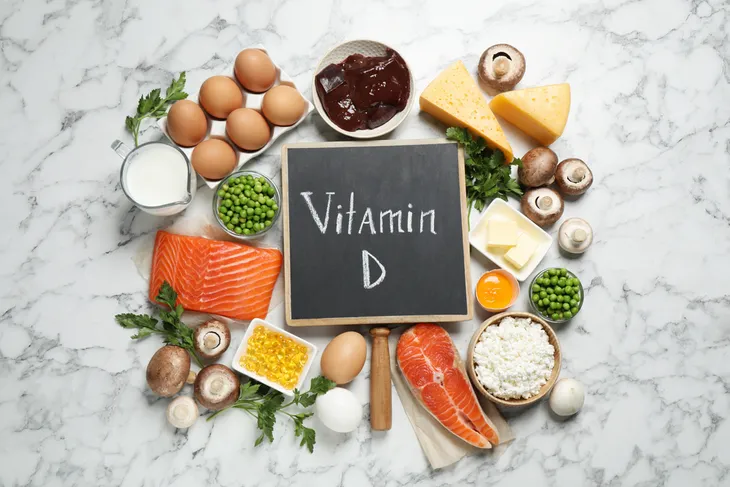 Shutterstock/New Africa
Shutterstock/New AfricaCalcium
Calcium is essential for healthy bone development and it may also help lower blood pressure, which is a common concern in the realm of men’s health. According to Fullscript, calcium is needed for the body’s cardiovascular function, muscle function and hormone secretion.
The most common source of calcium is through dairy, but it’s not the only way to get calcium. If you’re sensitive to dairy, you could incorporate more kale and broccoli into your diet, which are both strong sources of calcium.
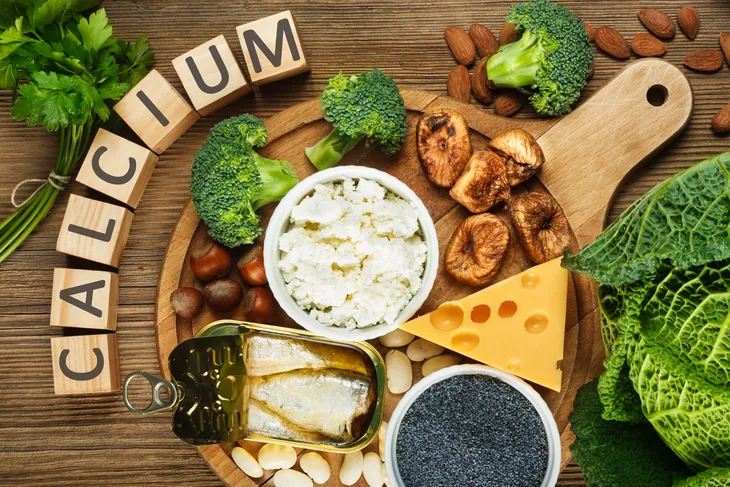 Shutterstock/Evan Lorne
Shutterstock/Evan LorneOmega 3
According to Harvard Health, men are about twice as likely as women to suffer from heart disease, so it’s important to take preventative steps early. One way to reduce the risk is by incorporating more Omega 3 into your diet. Omega 3 has so many benefits for the body including reducing the risk of heart disease, improving skin health, and preventing inflammation in the body.
Some of the best foods to boost your omega 3 levels include fatty fish, flaxseeds, walnuts, eggs and sardines. You could also opt for the supplement route if you’re looking to incorporate more Omega 3.
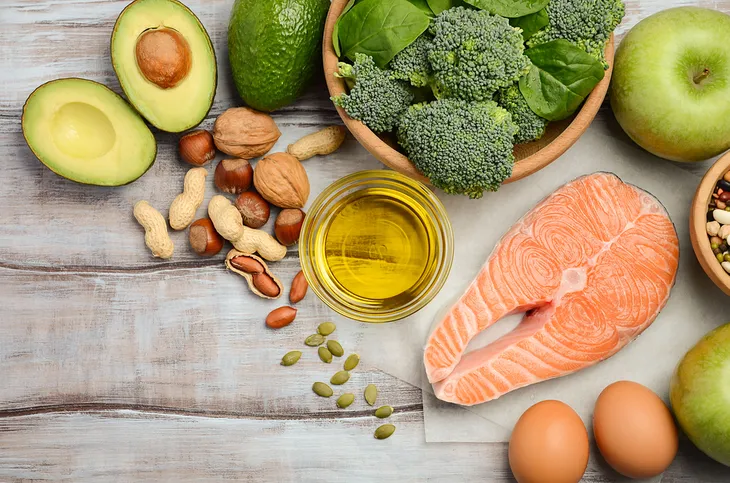 Shutterstock/JulijaDmitrijeva
Shutterstock/JulijaDmitrijevaMagnesium
Fullscript explains that most men do not get the recommended daily intake of magnesium, especially men in their 70s and beyond. Low magnesium intake may not cause any issues in the near term, but can lead to high blood pressure, migraines, heart disease, osteoporosis and migraines.
It’s recommended for men between the ages of 19 and 30 to aim for 400 mg of magnesium per day. If you’re 31 or over, 420 mg per day is recommended. A few foods that have high magnesium content include green leafy vegetables, legumes, nuts, seeds, and whole grains.
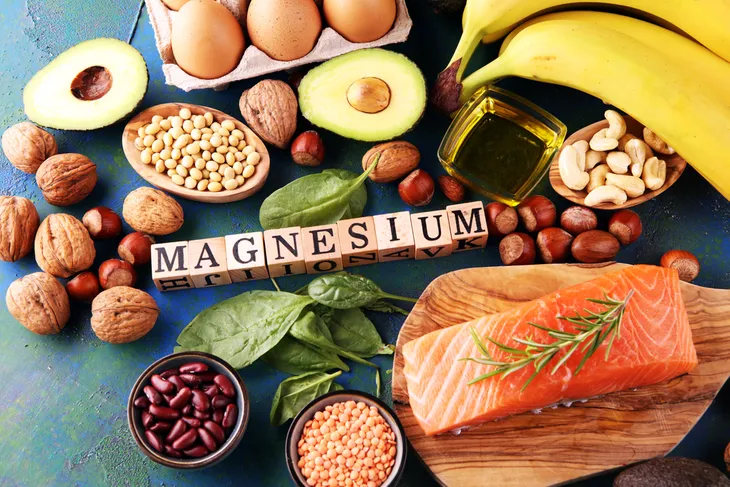 Shutterstock/beats1
Shutterstock/beats1Vitamin C
Vitamin C has immune-boosting properties and is essential to staying healthy and avoiding sickness. Similar to Omega-3, vitamin C can also boost the appearance of the skin since it plays a role in collagen formation, according to EatThis.
The National Institutes of Health recommends for adult men to take 90-milligrams of vitamin C per day, which is equivalent to six-ounces of orange juice. Other foods that contain high levels of vitamin C include bell peppers, broccoli, and strawberries.
 Shutterstock/Radu Bercan
Shutterstock/Radu BercanVitamin B12
B12 plays a vital role in keeping blood and nerve cells happy. A B12 deficiency in the blood may lead to fatigue, constipation, weakness or anemia. It’s important for men to ensure they are receiving adequate levels of B12 in their diet.
Some food sources that can boost B12 include clams, beef liver, nutritional yeast, trout, and salmon. It can be especially common for vegans or vegetarians to have low levels of B12 since the vitamin is naturally found in many animal products. In this case, adding a supplement to your daily routine may be a good option.
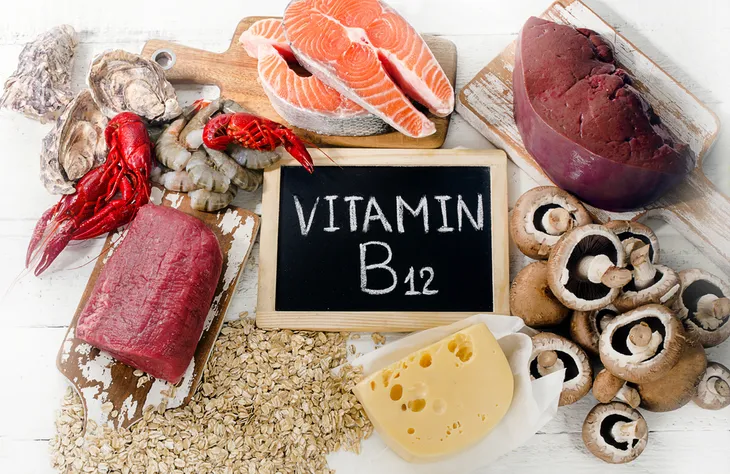 Shutterstock/Tatjana Baibakova
Shutterstock/Tatjana BaibakovaPotassium
Potassium is an important mineral to maintain blood pressure and contribute to healthy muscles. Potassium also plays a key role in helping your cells use glucose for energy and reducing your risk of developing high blood pressure, osteoporosis and kidney stones.
Men’s Health explains that nutrition surveys indicate that young men consume just 60 to 70-percent of the recommended 4,700 mg of potassium per day. To ensure you’re getting enough potassium, a few foods to focus on incorporating into your diet include bananas, kidney beans, potatoes, lentils, and dried apricots, among others.
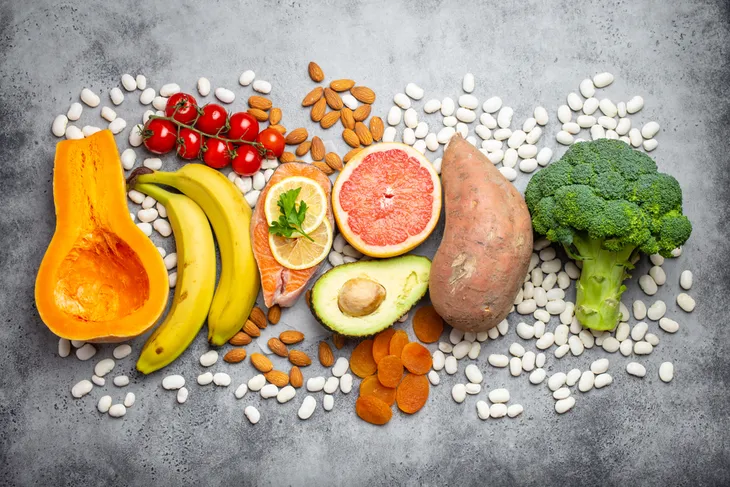 Shutterstock/Elena Eryomenko
Shutterstock/Elena EryomenkoIron
The World Health Organization reports that iron is one of the most common deficiencies worldwide, and can occur in both men and women. Iron helps oxygen move throughout the body and a lack of iron can lead to shortness of breath, lack of energy, brittle hair and nails, or pale skin.
Iron deficiencies are most common in men who are vegetarian, donate blood frequently, or suffer from a digestive condition. To ensure you are getting enough iron, nutritional experts suggest increasing your intake of spinach, lentils, fortified cereals, beef, and oysters.
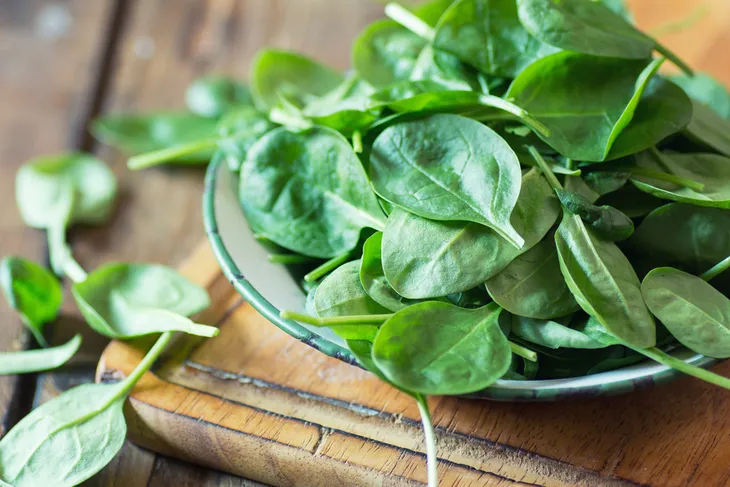 Shutterstock/Lecic
Shutterstock/LecicIodine
You may be surprised to learn that iodine is another nutrient deficiency that’s becoming common in men. According to Men’s Health, your thyroid gland requires iodine to produce hormones T3 and T4, which help control how you burn calories. This means an iodine deficiency may cause weight gain or feelings of fatigue.
It’s important to know that iodine is not the same as the salt that’s hidden in processed foods and that adding more salt to your meals won’t help an iodine deficiency. One of the best sources of iodine is milk. If you don’t consume milk in your diet, another way to add more iodine is through eggs or yogurt.
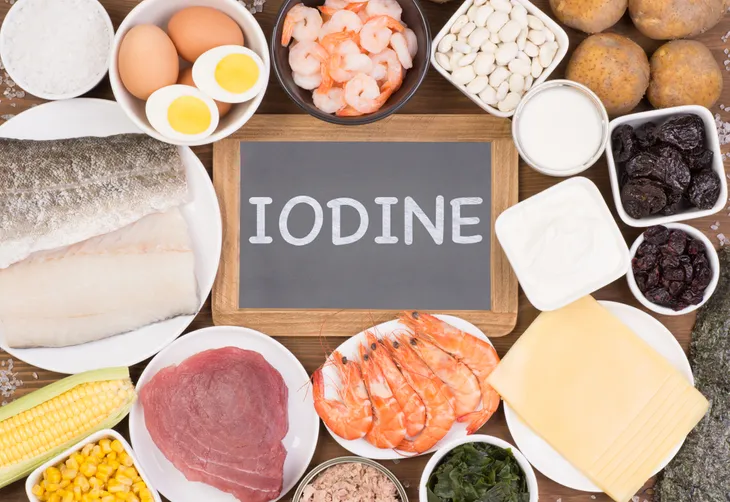 Shutterstock/photka
Shutterstock/photkaFolate
While a folate deficiency isn’t as common in men, it is one to be aware of. Folate is often associated with prenatal health, but it’s also important for men’s health. According to Eat This, natural sources of folate can help protect brain function as we age.
A few strong sources of folate to incorporate into your diet include asparagus, spinach, liver, Brussels sprouts and black-eyed peas. Taking a folate supplement, however, often isn’t recommended as it’s always best to get folate from natural sources to avoid adverse risks. Experts suggest aiming to consume 400 micrograms of folate per day.
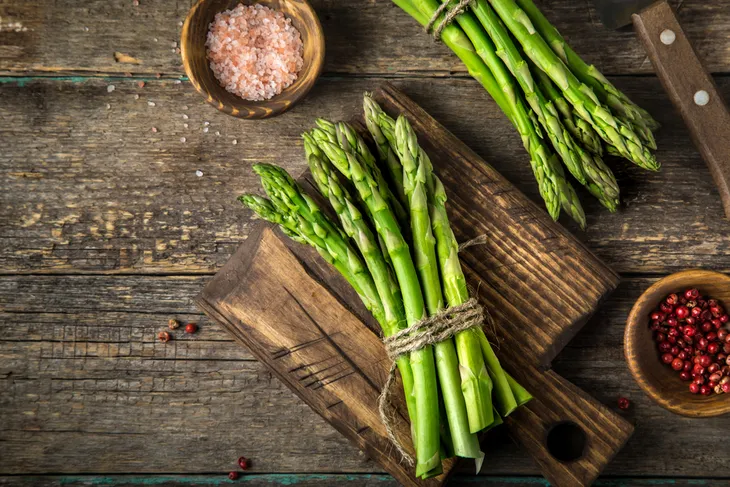 Shutterstock/Anna Shepulova
Shutterstock/Anna ShepulovaSelenium
Selenium has major benefits for men’s health, which means it’s important to review whether you’re getting enough of it from your diet. Eat This explains that selenium is a powerful antioxidant that can help fight free radicals and has also been shown to lower the risk of prostate cancer.
With selenium, it’s typically best to consume this nutrient through your meals since overdoing it with supplements can be dangerous. To ensure you’re getting enough selenium in your diet naturally, it’s recommended to increase your intake of seafood, eggs, dairy, tuna and chicken.
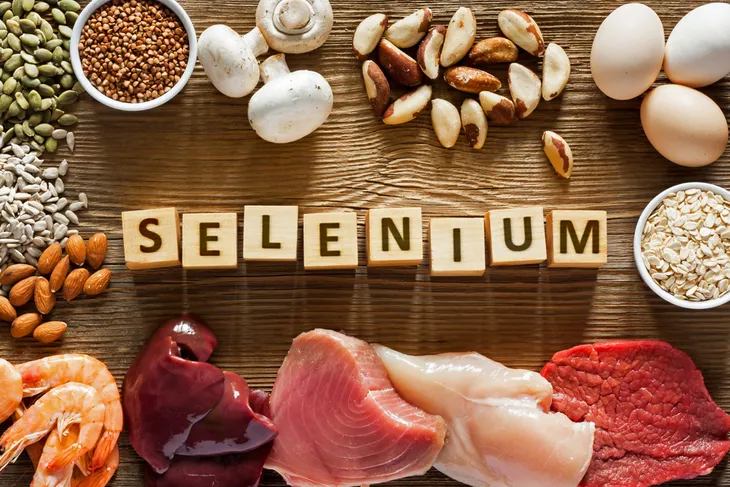 Shutterstock/Evan Lorne
Shutterstock/Evan LorneTesting for Nutrient Deficiencies
Overall, the best way to prevent a nutrient deficiency is to eat a well-rounded, balanced diet that includes a variety of whole foods that are nutrient-dense. Supplements may be necessary for those that can’t absorb nutrients from diet alone.
If you feel that you’re deficient in any of the areas outlined above, it’s always best to consult a doctor to explore your concerns. A doctor can perform tests to determine which areas you’re deficient in and help you come up with a course of action.
 Shutterstock/fizkes
Shutterstock/fizkes


